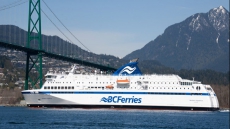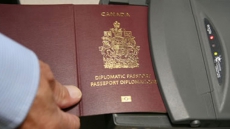OTTAWA - Canada lacks an overall vision for dealing with an expected growth in marine traffic in the Arctic, with outdated maps and surveys, inadequate navigational aids and icebreaking services that are stretched to the limit, the federal environment commissioner warned Tuesday.
Julie Gelfand's audit of Transport Canada, Environment Canada and Fisheries and Oceans, which oversees the coast guard, paints a startling portrait of just how many gaps there are in the federal government's knowledge and understanding of a region it has long claimed is a political and economic priority.
The area, despite the Harper's government's repeated emphasis on resource development and claims of sovereignty, has been "inadequately surveyed and charted," said Gelfand's fall report. Some Arctic maps are more than 40 years old, it noted.
"This means that many charts available to mariners are not current or reliable," Gelfand said. "The charts based on data collected through hydrographic surveys that do meet adequate or modern standards generally have a high likelihood of undetected hazards and uncertainty in position of the data."
Growth in marine shipping in the Arctic that's only expected to continue has meant a commensurate spike in demand for more accurate, detailed surveys and maps based on more efficient, detailed multi-beam sonar, the report said — a relatively modern-day survey technology that, even though it dates back to the 1970s, would be a significant improvement over the archaic information currently available.
Unfortunately, the Canadian Hydrographic Service lacks the resources and the logistical capacity to adequately conduct such surveys, rhe report found.
Gelfand's report acknowledges the challenge the CHS faces, noting it would be unreasonable to expect the entire Arctic to surveyed to modern standards. But the high-risk, high-traffic areas, particularly near communities where vessels come in to port, should be thoroughly mapped, it said.
Between 2002 and 2013, there were about 100 small — mostly oil and gasoline — spills in the Arctic, according to coast guard data.
Shipping in the fast-melting region is expected to increase and "given the fragile environment, harsh weather conditions, limited infrastructrure, and the direct dependance of communities on those ecosystems, marine spills as a result of shipping are considered one of the most serious threats to Arctic ecosystems," said the report.
The report also says the Canadian Coast Guard has not responded adequately to growing demands for improved fixed navigation aids in the Arctic, such as lights, beacons and buoys.
And it says the coast guard's capacity to provide icebreaking services is stretched to capacity and likely to decline due to planned vessel refits — all at a time of unprecedented demand and shipping seasons that grow longer each year.
Since 2007, commercial vessels have entered the Arctic earlier and left later than coast guard icebreakers. Concurrently, the ice-breaking service has also reduced the number of days it operates in the Far North.
"This reduced presence in the Arctic means that icebreakers serving the region may have to cover more territory and may take longer to respond to user requests for icebreaking services," said the report.
The federal government has responded to and agreed with Gelfand's conclusions, promising to prioritize hydrographic surveying efforts, review navigational aid systems and consider "modern and efficient solutions" for coast guard service delivery.






